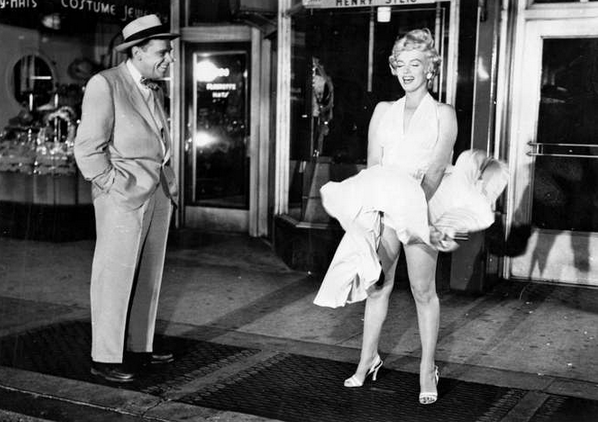Welcome to 2020! An Ironic Tribute to the Value of Hindsight
Lisa Van Dusen
December 31, 2019
As we welcome the dawn of the year 2020, it’s worth noting that the guy who left us, among the treasures of his legacy, the observation that “hindsight is always 2020”, wasn’t bad at foresight.
Billy Wilder began his career as a reporter in his native Austria before moving to Berlin to work for Germany’s most popular tabloid. He jumped to screenwriting in 1929 and, presumably realizing that his congenital irreverence made him as much of a Nazi target as his Jewish ancestry, decamped to Hollywood via Paris in 1933 — the year Adolf Hitler was appointed chancellor and the Reichstag fire rationalized the suspension of civil liberties.
Wilder spoke no English when he arrived in America. He eventually mastered the language sufficiently to write and/or direct an anthology of ageless comedies — Ninotchka, Some Like it Hot, The Seven Year Itch and The Apartment among them — and indelible dramas — including Sunset Boulevard (arguably also a black comedy) and The Lost Weekend — that won him six Oscars and an Irving G. Thalberg Memorial Award (1988).
The question that prompted Wilder’s wistful observation about the useless accuracy of hindsight has been lost to the mists of perfunctory Googling. Was he bemoaning Marilyn Monroe’s indifference to wake-up calls? Pondering Joe Gillis’s fatal taste in paramours? No idea. But 2020 seems like the perfect year to honour the spirit of the quote.
If there were a museum immortalizing great moments in hindsight, the section commemorating the first two decades of the second millennium might include: The slightly early but fateful entry from Nov. 12, 1999 of Bill Clinton signing into law the repeal of the Glass-Steagall Act with the comment, ”We have done right by the American people”; the cover page of the August 6, 2001 presidential daily briefing titled Bin Laden Determined to Strike in US; the notes from the meeting at which, in 2000, Google adopted the motto “Don’t be Evil”, perfectly encapsulating the use of turbid misdirection by Big Tech to lull the unsuspecting masses into unwittingly commodifying their own lives so they could be repurposed by data pimps, social engineers and democracy hijackers; the iconic 2008 Shepard Fairey “Hope” poster of Barack Obama (it’s already in the Smithsonian’s National Portrait Gallery but surely a loan to the Hindsight Museum could be arranged) as a reminder of both that, for eight years, America came about as close to the ideal of freedom and opportunity that drew Billy Wilder as might be humanly possible and that one man’s hope is another man’s provocative narrative catalyst; the New York Times headline from May 6th, 2016 — America’s Distaste for Both Trump and Clinton is Record-Breaking — that summed up the epically off-putting cynicism of the presidential campaign that ensconced Donald Trump’s democracy-degrading reality show in the White House; and, the gobsmacking clip of US Director of National Intelligence Dan Coats during testimony before Congress last January that “While we were sleeping in the last decade and a half, China had a remarkable rise in capabilities that are stunning.” Also, the casting of Johnny Depp as Tonto in The Lone Ranger (2013).
Of course, we all have our own personal collections of hindsight memorabilia, some more gothic and spectacular than others. Frankly, much of my own 21st-century section makes Wisconsin’s International Clown Hall of Fame look like the Louvre’s Leonardo da Vinci exhibit.
So, as this new year sprockets along from scene to scene — some more previously unthinkable than others — let’s remember that the century is still young and that there’s really no point looking back except to be better at looking ahead. “It was hell at the time,” Billy Wilder also once said, “but after it was over, it was wonderful.”
Lisa Van Dusen is associate editor of Policy Magazine and a columnist for The Hill Times. She was Washington bureau chief for Sun Media, international writer for Peter Jennings at ABC News, and an editor at AP in New York and UPI in Washington.

